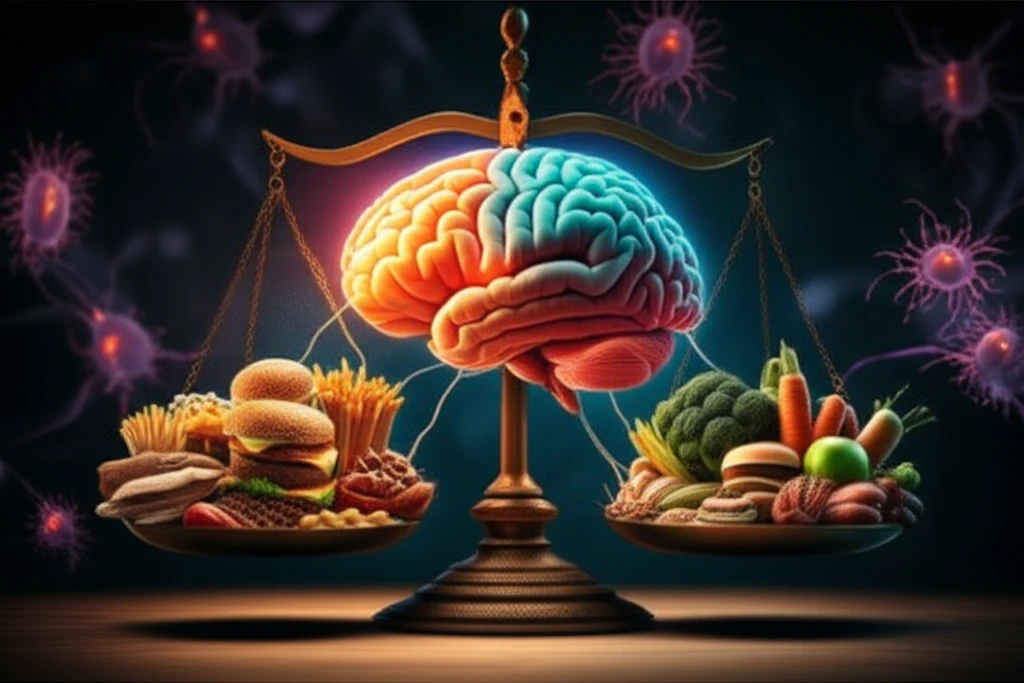
Is Obesity Really a Brain Game? How Hypothalamic Inflammation Changes Everything
"Uncover the surprising link between brain inflammation and weight gain, and what you can do about it."
For years, the battle against obesity has been framed as a simple equation: calories in versus calories out. While diet and exercise undoubtedly play crucial roles, mounting evidence suggests a more complex picture. Scientists are beginning to understand that obesity may have as much to do with what's happening in your brain as it does with what's on your plate.
Specifically, research is focusing on the mediobasal hypothalamus (MBH), a key brain region involved in controlling hunger, energy expenditure, and metabolism. When this area becomes inflamed, it can disrupt the delicate balance that regulates body weight, making it harder to lose weight and easier to gain it.
This inflammation often involves microglia, the brain's resident immune cells. When triggered by factors like a high-fat diet, these cells become activated, leading to a cascade of events that can alter brain function and contribute to obesity. This article explores the fascinating connection between hypothalamic inflammation, microglial activation, and weight gain, offering insights into potential new strategies for managing obesity.
The Hypothalamus: Your Brain's Control Center for Weight Management

The mediobasal hypothalamus (MBH) is like your brain's mission control for energy balance. It constantly monitors your body's energy status and coordinates responses to keep things running smoothly. Within the MBH, the arcuate nucleus (ARC) acts as a first responder, directly sensing signals from the body, such as hormones like leptin and insulin.
- Proopiomelanocortin (POMC) and Cocaine- and Amphetamine-Regulated Transcript (CART) neurons: These neurons are activated after a meal, suppressing appetite and increasing energy expenditure.
- Neuropeptide Y (NPY) and Agouti-Related Protein (AgRP) neurons: These neurons kick in when you're fasting, stimulating hunger and reducing energy expenditure.
The Future of Obesity Treatment: Targeting the Brain
The discovery of the link between hypothalamic inflammation and obesity opens exciting new avenues for treatment. While more research is needed, scientists are optimistic that targeting microglial activation and reducing inflammation in the brain could offer a more effective way to manage weight and improve metabolic health. By shifting the focus from just diet and exercise to include brain health, we may finally be able to turn the tide against the global obesity epidemic.
